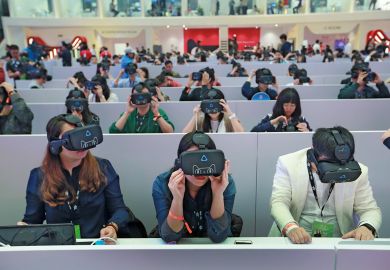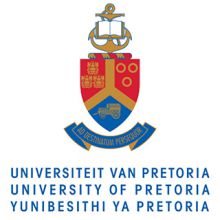Blended learning will not truly take off until lecturers have access to recording studios and video editing services that will allow them to create high-quality online lectures, an e-learning expert has warned.
Speaking at Times Higher Education’s inaugural Pan-Africa Universities Summit in South Africa, Eric Appau Asante, director of e-learning at Ghana’s Kwame Nkrumah University of Science and Technology, said it was vital that universities invest in modern recording facilities if they wished to expand online lectures, rather than expecting staff to simply film themselves on a laptop – either in class or in the lecture theatre.
“Just switching on the camera is very basic – if you want decent online lectures, you need to pay attention to the sound, the lighting and the overall environment,” Professor Asante told Times Higher Education at the event, which is taking place at the University of Pretoria, in association with Stellenbosch University.
“That requires studio space with cameras, teleprompters and touchscreen tablets so you can bring up any content that you need,” he explained, noting that his institution now provided 23 specially equipped studio suites in which lecturers could film their lectures.
Lecturers could also access editing services that aimed to turn around videos within 48 hours, added Professor Asante, whose university topped last year’s THE’s Impact Rankings for quality education, which centres on providing access to first-generation students and the broader community.
Without investment in this kind of infrastructure and support services, it would be difficult for lecturers to create an “online presence” similar to that which many staff established for in-person lectures, said Professor Asante.
“People have to feel that presence of [the] lecturer, otherwise students will often tune [out], turn off the camera and go elsewhere,” he said. “You could just film in a regular classroom, but it is better to step ahead with blended learning like this.”
At present, most students at Kwame Nkrumah take about 30 per cent of their classes online – a proportion that rises to 50 per cent for distance learning students, he said.
That shift had been supported by asking faculty to use the new facilities, which have backup power generators and guaranteed internet to ensure that recordings are not interrupted, he explained.
Staff who engaged strongly had been recognised with awards as part of the university’s e-learning celebrations week, while staff above the age of 50 were given additional support to encourage the transition to more online learning, Professor Asante explained.
“Some people felt we should leave this to the younger generation, but I thought we could do things to help people love this digital delivery,” he said.
“We’ve introduced some additional awards for those lecturers who have retired and who have come back part-time on a contract basis – they should also be interested in how they’re doing their lectures, and I believe they are.”
Register to continue
Why register?
- Registration is free and only takes a moment
- Once registered, you can read 3 articles a month
- Sign up for our newsletter
Subscribe
Or subscribe for unlimited access to:
- Unlimited access to news, views, insights & reviews
- Digital editions
- Digital access to THE’s university and college rankings analysis
Already registered or a current subscriber?










